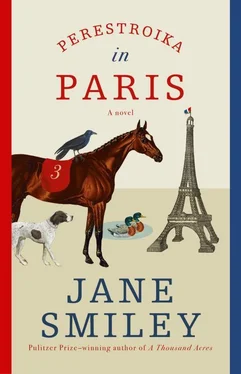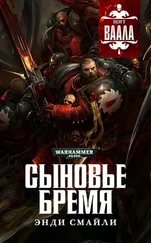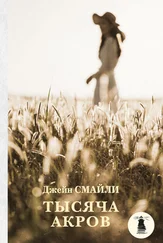Now Étienne and Madame came shuffling out, dragging the trolley. Humans stepped aside to give them space. Étienne was pulling the trolley, and it was full. The flap, partially open, revealed the box of chocolates nestled into the moist greenery of a bunch of carrots. Frida rose to her feet. She said nothing, but Kurt did what she would have advised him to do: he walked along underneath her, exactly within her midday shadow. He made no sounds. Fortunately, Madame was tired, and she and Étienne proceeded deliberately, rather close to the wall of shops, out of the way of passersby. Frida was a little nervous, but what would anyone do even if they did see them? The rat was inside Frida’s territory. Even a human would deduce from that that the rat belonged to her.
But of all the humans, only the gendarme saw the rat scurrying down the street, within the stride of the German shorthair. It looked like an optical illusion, especially when the dog paused with the boy and the old woman for the streetlight, and the rat paused, too, and then skittered off the curb and across the intersection in the dog’s shadow, perfectly in time with the dog’s step. Did the dog know the rat was there? The gendarme couldn’t tell. After the four of them disappeared around a corner, he stood scratching his head and wondering what he had really seen. He checked his watch. Lunchtime. He went into the nearest bar and ordered a shot of brandy; then he wondered if perhaps he might be transferred to Montmartre, where strange things happened all the time and weren’t so disconcerting.
That evening, Kurt could not sleep at all: he was still too amazed at his first foray into the great world. He thought that it was no use telling Conrad about it—Conrad would not believe that their kingdom here, so huge to them, was relatively so small and dark, or that the number of humans in the world so defied all of Kurt’s powers of perception that his sensory mechanism had broken down completely. He might believe that the sunlight was so bright that a rat could not open his eyes for more than a second, and that the noise of humans and their doings was overpowering, but he would not believe that a dog had saved Kurt’s life, that cats were relatively few and far between, or that Kurt could not wait to go out there and look again for his doe.
Pierre thought that perhaps they were due for an early spring—the Champ de Mars had gotten plenty of rain since the December blizzard, but was now drying out quickly. It was Pierre’s job to make a meadow in the midst of a city, to give it beautiful flower beds and swaths of color. And no one in Paris was willing to step in a puddle. It did not matter if a man or a woman purchased his or her shoes at Hermès or at Monoprix, those shoes were not to know muddy water. Pierre had been to the U.K. and seen “wellies,” but never on a bona-fide Parisian. And so he had to take care of the allées and the grass (which was wet and tender this time of year, reaching for the sunshine) and the fences, which got rusted and bent over the winter, by whom and how Pierre was not quite certain. It was a hectic time, which was fine with Pierre, since he had no one at home but his four cats, and because there were four of them, they viewed him even more superciliously than the citizens of Paris did—the mere fact that they outnumbered him rendered him incidental in their eyes. He knew from that piercing whinny before Christmas that the horse was somewhere nearby, but he hadn’t seen her or any of her products recently. It gave him a pleasantly eerie feeling when he happened to think of it, but he hardly ever happened to think of it, he was so busy.
When Pierre was growing up on a farm west of Saint-Céré, five hundred kilometers due south of the very spot where he was standing, and infinite worlds away, he had cared nothing about the apple orchard, the plum trees, the sunflower fields, the cows, or the sheep. He’d wanted only to get to Paris. When he got here, he tried various forms of employment, and at the first one, a travel agency, he’d met his wife. And they had traveled a bit—to Greece, Italy, Morocco, Scotland, England. But the tightness of the office made him restless, so he tried driving a taxi. The streets of Paris were both confusing and frustrating—once he had been stopped for an hour in a traffic jam over by Montreuil in which the cars were so crammed together that even a police vehicle blowing its siren had been unable to get through. Then he’d found this job, and his restlessness faded away, or, rather, dissolved into the very sort of work he had left behind down south. Here he was, active, orderly, as solitary as his father had been. Almost fifty. His father had died at fifty, pulmonary embolism.
Then, as he was sorting rakes in the gardening shed and inspecting the upper hinge on the shed door (screws coming loose—the door needed replacing), he saw a stray dog trot past. The dog was a German shorthair, sleek and elegant, with a confident air. A striking dog, which was why Pierre recognized her—she was the dog that belonged to that busker. Pierre had seen the two of them several times in various places around the arrondissement, particularly across the Pont d’Iéna, over by the carousel and the architectural museum. Everyone knew the fellow was quite a musician, had a guitar worth as much as an automobile, made a lot of money, could have found a place to live if he had wanted to, but you could tell by his look that he was a bit of a renegade, the kind of old fellow, maybe sixty, who had always been a renegade. Pierre had given him a euro or two. What was that song he’d played—“Malagueña”? Something classy. Pierre stepped out of the shed enclosure and watched the dog trot away, then looked around. The busker was nowhere to be seen. The dog was trotting north, carrying a shopping bag. Pierre laughed, pleased with the distraction. He thought, well, once you have decided that a stray horse is none of your business, then a dog with a shopping bag is truly none of your business.

AFTER EATING her meal, slowly, as she always did, as she always had—even oatmeal had interesting flavors if you ate it slowly enough—Madame de Mornay made her way into the grand salon, feeling the warmth of the sun as she went. She paused at the second window and touched the glass. It was almost hot. She turned the crank that opened a lower pane and felt the breeze. Her ninety-eighth spring! Had every single one been so full and rich? She did not regret any one of them. She took a deep breath and then made her way to her chair, where she sat quietly for a while, sensing the flow of the air around her. Then she put her hand out, found her knitting, and commenced. Her project was a useless one, a coverlet to be pieced from the squares she knitted, using up a lifetime of leftovers, most of them merino wool, her favorite. She had made many a sweater and sock in her day; no doubt her bin of remnants was a riot of colors that did not match. But she knew her stitches by heart, by feel. She didn’t have to see what she was doing to know whether to knit or purl or pass the slip stitch over. She could do a simple lace if she kept proper count. It was rather like saying her rosary or playing the piano, orderly and reassuring.
Perhaps the onset of spring was why those feelings of dread for Étienne that she had had around her birthday had receded in favor of hope, or even confidence. She still understood the stakes, but the boy was taller all of a sudden—she had to lift her hand fairly high to put it on his shoulder—and somehow this calmed her. Yes, she had been selfish to keep him here; however, she herself had never gone to school, had had a governess who was quite well educated, who had taught her to read, write, and do mathematical equations, had introduced her to Stendhal, Balzac, Flaubert, Rousseau, Poincaré, Colette, and George Sand. A music tutor had taught her to play the piano. She was allowed free run of a library that included many eyebrow-raising texts, and she had read them and discussed them with her tutor and her mother numerous times. Étienne might have started school at five, but Madame had decided that the school nearby was a sterile, unpleasant place, not right for her darling.
Читать дальше











